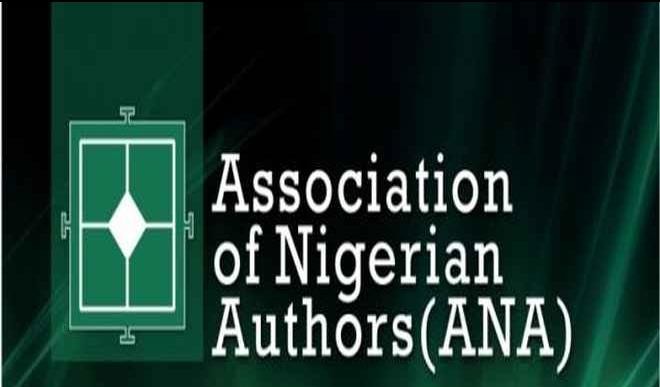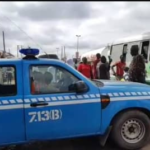“Writers should continue to be creative but they must, in their creativity, also turn their attentions to addressing the various social ills affecting our communities. Major among these issues are the plight of the girl-child, the Almajiri boy-child, as well as drug abuse. Without addressing such social crises, creative thinking may not be complete and beneficial to society. We, as leaders, are willing to institute prizes and reward creative output that helps us address our myriad problems.”
So stated Sarkin Kano Muhammad Sanusi II as special guest at the 2018 Kano Literary Week (KLW) organised by the Association of Nigerian Authors (ANA), Kano State Branch themed “Creative Writing as a Tool for Enhancing Democracy.” This year’s KLW is the second in a series that started last year in ANA’s effort to promote creativity and rescue literary activity from the sorry state it is in today.
Guest Speaker and political scientist Prof. Habu Mohammed stressed that in history most political change was initiated by thinkers, who were usually writers as well. Writers, he opined, contributed significantly in the emergence, evolution and development of democracy and that ANA, as a writers’ association, has a significant role to play in the creation of political awareness among the youth, and can also help curtail many of the problems pushing our society backwards. He particularly mentioned the rot in the education sector.
ANA Kano Chairman Zaharaddeen Kallah, a prolific writer himself, had echoed the Emir that writers are very concerned about the state of their societies, especially in the areas of poverty, corruption, inequality and bad governance. According to him, as a writer’s group, they were determined to look at these problems and raise a massive campaign towards addressing them. What they need is support from the top.
A great tragedy (among the many we suffer under) that has befallen us as a people is that of deterioration of the reading culture in particular, and literary creativity in general. Therefore, an important activity of the programme was ‘Reading Through Role Model’ aimed at reviving the reading culture which, originally poor among our people, has taken a further bashing from the emergence of the Internet and social media.
The special reading sessions were aimed at fostering greater interest in reading among children and youths and, by reading, it means books and other publications, even if electronic version of them. Leaders, celebrities and other influential people were invited to stand and read before the students and pupils.
Elder statesman and prominent writer (who has published scores of books in Hausa) Alhaji Bashir Othman Tofa, was the first Role Model Reader at the Opening Ceremony. He read a hilarious passage from one of his books – Alhaji Tofa is well known for his acute sense of humour.
One thing that made the last generation of writers what they were was the fact that they were avid readers and had participated in literary activities such as debates and quizzes. At this KLW, secondary schools from Kano and neighbouring states competed in a Literary Quiz, the aim of which was to create ravenous and lifelong readers with expanded horizons, imaginations and curiosity, and to encourage an independent reading across our schools and homes. Similarly, it may hopefully strengthen the position of literature and literary activities and also foster connectivity around books and reading.
For the English Literature Quiz, Creative Minds Academy emerged winner while Shekara Girls Secondary School and Khalil Arabic Secondary School placed second and third respectively. In the Hausa Literature Category, FGC Kiyawa in Jigawa State emerged winner followed by Gora Academy in second position and, again, Shekara Girls Secondary School third place. (It was instructive and noteworthy that some of the winners, such as Shekara, are public, i.e. government, schools.)
On the use of language in the dissemination of knowledge, the Kano Emir had further challenged the intelligentsia and creative minds present at the KLW: “And why must we use English, a foreign language, to teach in our schools? All doctors in China studied and are ‘doctoring’ in Chinese; all engineers in Japan studied and are ‘engineering’ in Japanese; all scientists in Russia studied in Russian. When will we abandon our colonial mentality and teach our sciences and our medicine and our engineering in Hausa? Why can’t we? This is the challenge we throw to intellectuals, among whom are writers, to reduce education and knowledge into our local languages so our children can be proud of their heritage as the Chinese, Japanese and Russian children are of theirs.”
An English Writers’ Parley for discourse between selected experienced and starting writers, readers and audience, was also held. What many people don’t know, and don’t appreciate, is that the North is blessed with very impactful writers, even in the English medium, but who are not celebrated by the country because of the accident of their geography, and also because we the readers prefer to read titillating fare related to rising suns. Writers such as Kamal Aliyu and Aliyu Jibia are germane examples. The parley gave an opportunity for young writers and students to learn about how veteran writers get their ideas and turn those ideas into books.
Another component of the activities was the Writers’ Talk where, similar to the Parley, established individual writers using English or Hausa medium for their writings were invited to make presentations to this audience of aspiring and talented youths.
But perhaps the sum total of our predicament in the North, especially pertaining to education, began with the fact that when the elite established their own private schools from nursery to university, they left the 99% of the population – the masses – to wallow in the abject illiteracy of a poor, underfunded, dysfunctional government-neglected education system. The would-be English-medium authors emerging today happen to come from elite (or so-called private) schools. The English level of most public schools is, to say the least, nil, void and of no effect.
A glaring manifestation of this apartheid is the current ASUU strike – while the children of the masses are at home being de-educated and disenfranchised, the children of the elite are busy studying in their private universities, both at home and abroad. And, unless ASUU and its compatriots find a way of ALSO blocking access to education by posh children (by picketing major airports in September/October, for example, and blocking the roads leading to Nile Baze AUN etc.) to coincide with the loss by ours, our children will continue to wallow in their disadvantage, taught by social media in lieu of teachers – and then the posh jobs at CBN and NNPC await those privileged few.
But still beats me – and you, no? – when children of ALMOST ALL officials of Ministries of Education are NOT in the government schools they supervise, but in these private schools too. And you think they will negotiate truthfully with ASUU or ASUP or COESU or similar teachers’ organisations teaching the children of the poor?
How, then, could our poor children read, let alone WRITE?

 Join Daily Trust WhatsApp Community For Quick Access To News and Happenings Around You.
Join Daily Trust WhatsApp Community For Quick Access To News and Happenings Around You.

